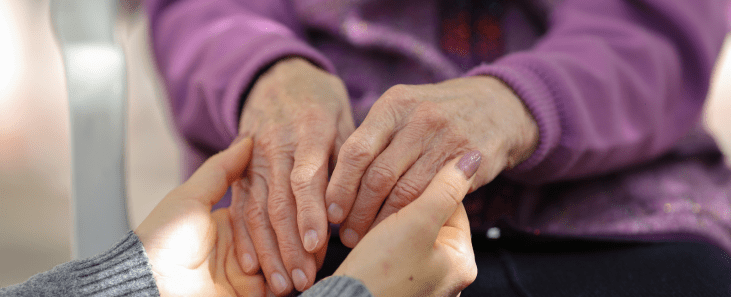Dementia and Changes in Communication

Currently, there is no cure for Alzheimer’s disease and related dementias. However, there are strategies that can help manage a loved one’s symptoms and maximize their quality of life. One of these strategies is communication.
As dementia progresses, changes occur in a person’s ability to both express themselves in words and understand those around them.
Communication is more than talking. It involves:
- Understanding and interpreting what is going on around us
- Tone of voice, facial expressions, body language, and touch
As a caregiver, it’s important to be aware of what your non-verbal messages may communicate to a loved one. For example, if your tone of voice or body language projects a hurried or anxious tone, your loved one will pick up on that more than what your words are conveying.
Common communication changes a loved one with dementia may experience:
- Difficulty understanding or following directions
- Asking repetitive questions or statements
- Slowed ability to think and process language
- Difficulty finding words
- Difficulty following conversations
- Easily distracted by noise, activities, or multiple conversations
- Difficulty organizing words logically or the invention of new words
- Speaking less often or relying on gestures
Changes in communication ability vary from person to person, as well as for those who are diagnosed with different forms of dementia.
How You can Help:
- Try to maintain eye contact and approach from the front whenever possible
- Speak clearly, and use a calm and friendly tone
- Use short, simple words and sentences
- Give one-step directions or ask one question at a time
- Allow adequate time for a response
- If your loved one can’t find the right word, venture a guess or try to cue them
- Be aware of your own body language
- Use gestures such as pointing, modeling, or visual cues
- Provide comfort and reassurance whenever possible
- Reduce distractions in the environment
The ability to exchange our ideas, wishes, and feelings is a basic human need. With knowledge, patience, and a change in how we communicate with loved ones, we can help them continue to express themselves with dignity.